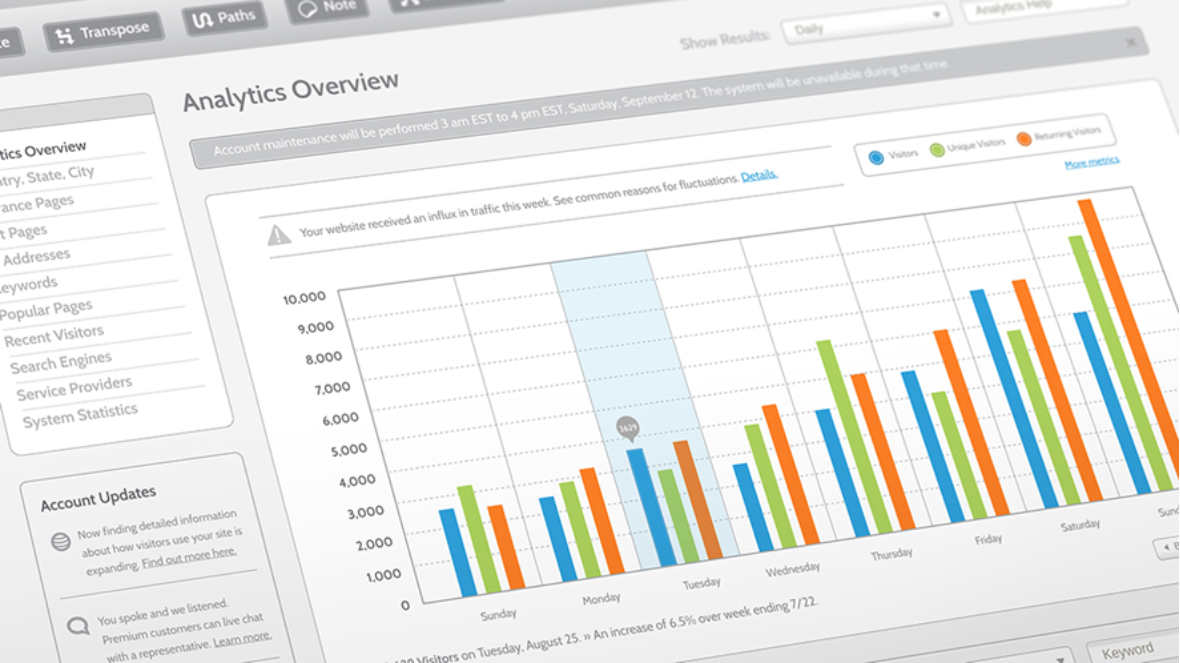Business Intelligence and how to improve productivity in your business
Sustainability, efficiency and cost reduction are some of the advantages of implementing BI

New technologies have changed the way many companies think about productivity. And now, thanks to data collection, it is much easier to increase our efficiency, by automating tasks and spending more time on business priorities that create more value and drive real progress.
In this article, we'll find out what Business Intelligence is, how it can help you significantly streamline your workflows and how it differs from Big Data.
Business Intelligence: What is it and what is it used for?
Business Intelligence (BI) is a set of technologies and strategies that help transform data into useful information. This gives companies a much clearer oversight of their operations, aiding with strategic decision-making. The functions of BI are:
- Data collection: Gathering data from various sources, such as databases.
- Data analysis: Collected data is processed and analysed to extract information that brings value to the business.
- Data visualisation: Information is presented visually, through graphs, dashboards and other tools, to make it easy to use and understand.
- Reports: Customised reports are generated to answer specific questions and facilitate effective decision-making.

Business Intelligence: Applications in printing devices and document solutions
By analysing all this data, companies can quickly identify new opportunities to improve their printing equipment and document management processes.
Benefits of BI in document management
The primary benefits of incorporating BI technology into your business document management are:
- Reduced costs: By identifying the equipment and users that consume the most resources, print policies can be implemented to optimise the use of paper, toner and energy.
- Increased efficiency: Optimising workflows through task automation can save time and reduce errors, both in the office and remotely.
- Improved security: BI can help proactively identify potential security threats and risks to your documents while implementing measures to protect confidential data.
- Sustainability: Business Intelligence can also identify new opportunities to reduce the environmental impact of document management. This makes it easier for you to implement more sustainable practices, such as reducing paper and using more environmentally friendly inks.
5 advantages of Business Intelligence for businesses
At a general level, these are the most important benefits that BI brings to companies in different sectors:
- Increased operational efficiency: BI helps to identify inefficiencies in processes and optimise the use of materials and resources. For example, in manufacturing, this can used to streamline supply chain.
- Increased customer satisfaction: By gaining a deeper knowledge and understanding of customer needs, companies can offer much more useful and personalised products and services. For example, a telecommunications company can use BI to analyse customer usage trends and offer more appropriate services.
- Cost reduction: By optimising production processes and improving efficiency and productivity, BI can help businesses reduce costs across departments, such as marketing, sales or human resources. For example, a logistics company could benefit from this tool by reducing its transportation costs and speeding up product delivery to the end customer.
- Improved decision making: By providing more specific information, BI enables more informed, data-driven decisions. A retail company, for example, can identify best-selling products by location and order more products to increase sales.
- Identifying new business opportunities: BI can reveal emerging trends and market opportunities that might otherwise go unnoticed. A technology company can use BI to identify new markets and customer segments to target.

Differences between Big Data and Business Intelligence
Although Big Data and Business Intelligence are closely related, they are not the same. Big Data refers to large volumes of structured and unstructured data, which is often difficult to process with traditional tools. BI, on the other hand, is the process of converting that data into useful information for decision making.
It is evident that Business Intelligence is a very valuable tool, capable of providing a clear and accurate view of data, which allows companies to make informed decisions, improve efficiency and productivity, provide the best customer experience and identify new business opportunities.
In short, BI is much more than an innovative technology for managing and organising data. It is a necessity for any business that wants to drive growth and increase sales.
At Kyocera, we help you improve productivity and efficiency in your business with the most innovative printing and document solutions on the market. We also provide you with key tools to better navigate the digital environment and boost your sales. To learn more, visit our website and reach out to a Kyocera expert.